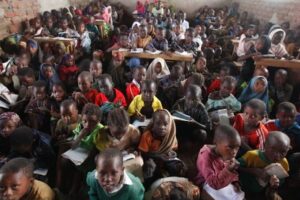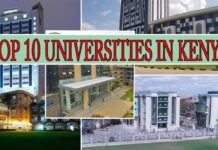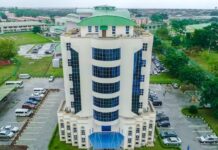Welcome to this post on the poor state of education in Africa in 2026, via Afrokonnect. The state of education in various parts of Africa has been plagued by various challenges. They include inadequate infrastructure, limited resources and bad quality of teachers/lectures. These challenges has contributed to the significantly to Africa possessing learning centers being tagged as “bad schools”.
Various parts of Africa has struggled to cope with the fast pace educational system operated by the leading countries hence leading to the poor state of education in Africa in 2026. This has led to various international partnerships with the aim to solve these challenges. However, the massive corruption in the education sector in Africa has destroyed the aim and objective of these numerous partnerships.
Problems associated with the poor state of education in Africa in 2026
1) Poor Funding:
The education sector is overseen by a ministry in various countries in Africa. Hence, the funding of education in several of these countries is majorly a governmental affair. However, due to the high level of corruption in government in these countries, education in Africa has always suffered to a lack of adequate funding.
This has led to poor infrastructure, absence of quality teaching staff, non-payment of teachers’ salaries hence leading to the poor state of education in Africa in 2025. Also, the economic crisis experienced by these countries has led to massive cuts in the funding allocated to the education sector. This has also significantly contributed to the poor state of education in Africa in 2025.
2) Unavailability of Qualified Teachers:
The attractiveness of the teaching profession in Africa has significantly reduced. Qualified teachers no longer find passion teaching in African schools and prefer to ply their trade abroad, i.e, European countries, Asia and America. The pay structure of teachers even the professors is so poor in Africa. This has led to a massive reduction in quality teachers in various African countries.
Most qualified teachers prefer to apply to better paying jobs than teaching.Hence, the few teachers left have only taken up the profession due to a lack of better jobs. These teachers will exhibit low level of dedication as they are on search for greener pastures. This directly contributes to the poor state of education in Africa in 2024.
3) Corruption and Indiscipline:
In Africa, there have been numerous cases of corruption and indiscipline in Africa’s education system. This cases are majorly found in the higher institutions of these countries. Most of these institutions experience high cases of cultism from its students. The high cases of bribery and academic fraud can be overlooked in many of these African institutions. The case of bribery is seen in all levels of education as students and parents alike are seen offering monetary gifts to teachers to ensure they (their wards) don’t fail exams. Other forms of academic misconducts involve cheating during exams, impersonation of candidates during exams, falsification of academic records, paying for grades with money, gifts, assaulting examiners and invigilators, Etc.
4) Understaffing:
Various private secondary schools in Africa in a bid to make profit are known for understaffing their schools. This means that they don’t employ the required amount of teachers. Hence, a teacher undertakes tasks meant for two or more teachers. This leads to figure hence lack of quality of teaching from the teacher.
Other schools are known for employing few permanent staff and supporting them with numerous part-time teachers because these temporary teachers account for less fees unlike the full-time teachers. This has led significantly to the poor state of education in Africa in 2026.
Top Countries contributing to the poor state of education in Africa in 2026
1) Niger:
Niger is at the bottom of the UN Education Index in the world. The country possesses the worst education system in Africa with 0.528 EDI. The country with a population of 21 million is the least literate nation in the world. A little over 15% of adults can read and write. The country has only 5.2% of its population in secondary school and over 31% of its primary school pupils have dropped out. This has led to social problems like early marriages, child labor, and poverty.
2) Burkina Faso:
The country is second on the list with 0.894 EDI. It is also tied for the lowest adult literacy rate with 27.7% of its adult population are literate. Also, only 2% of its adult education have experienced secondary education. However, the country has begun to implement several governmental policies to ensure there is a reduction in gender gaps in education.
3) Mali:
The country occupies the number 3 spot with an EDI of 0.612. The country also possesses an adult literacy rate of 31.10%. However, the literacy rates of women are much lower than that of men in the country. The bad educational system in Mali could be traced to its history. The variety of educational systems from countries who occupied it has made it hard for Mali to educate its children in a single, unified system. This has led to a standardization in the country’s educational systems.
4) Central African Republic (CAR):
The country’s has one of the worst education system with an EDI of 0.617 according to UNESCO’s Education ranking. The government of the country has committed inadequate financial resources to the educational system and this has led to the poor state of education in the country. The quality of education in the country is very low and the country also records the second highest in school dropout rate in the world.
5) Ethiopia:
The country possesses an EDI of 0.622 and has an adult literacy rate of 39%. This makes it the fifth lowest in the world. It also has one of the lowest educational statistics in the world. Hence, the educational system looks bleak for most of the country’s populace.
Solutions to the poor state of education in Africa in 2026
1) Increased Funding for Education:
The government of various African countries should prioritize the education sector in their budgets. This will ensure the allocation of sufficient funds for infrastructure, remuneration of quality teachers and provision of learning materials.
2) Infrastructure Development:
The provision of infrastructure in various African schools will enable the top quality of classrooms hence providing a conducive environment for students.
3) Teacher Training and Recruitment:
Various governments in Africa have to develop a comprehensive teacher training programs to enhance the skill and improve the quality of teachers in their respective countries. They should also make the teaching profession attractive by offering competitive salaries and benefits to teachers. This will also contribute massively to reducing the shortage of quality teachers.
4) Promotion of Equality:
The male and female child should be considered as equals when it comes to opportunities to get educated.Also, the gap between the rural and urban areas has to be bridged through the implementation of various policies. This will ensure that all regions get the same access to education.
5) Robust Education Policies:
The government of several African countries should ensure the development of clear, concise and proactive education policies. Also, they should ensure the evaluation of these policies to ensure they identify areas for improvement and innovation.
Conclusion on the poor state of education in Africa in 2026

The poor state of education in Africa in 2025 reflects a complex landscape marked with various challenges. However, it is important to note that some countries possesses commendable educational systems with names such as Egypt and Morocco leading the chart. It is also important to acknowledge the efforts of various African governments, NGOs, and communities to uplift the educational standards of their respective countries. However, it requires a collaborative approach to address the issue.For Africa to attain economic growth, investment in the education sector is necessary for longterm success.
The journey to annihilate the poor state of education in Africa in 2026 requires commitment and a shared vision by various countries on the African continent. This will enable the continent witness the transformative power of education. Thanks for reading and I hope to see you again on Afrokonnect.ng.















